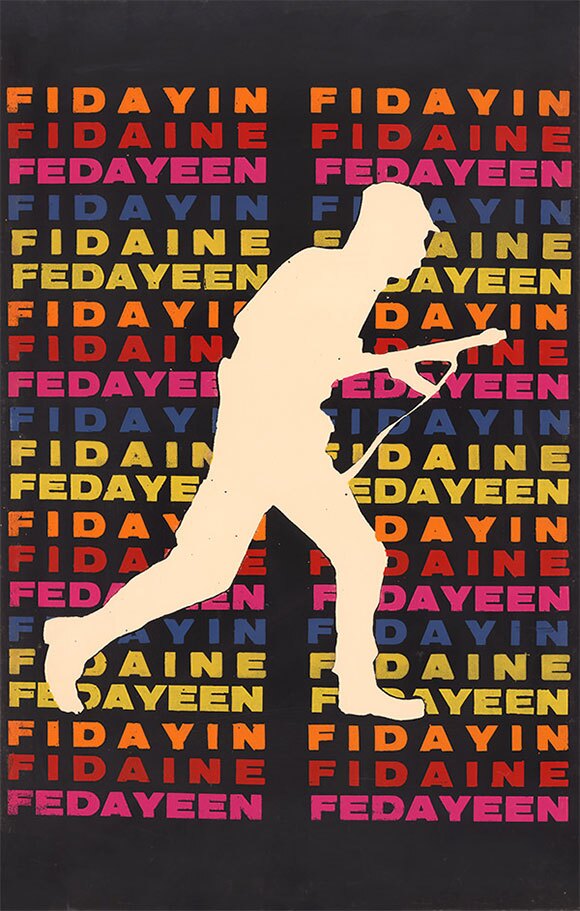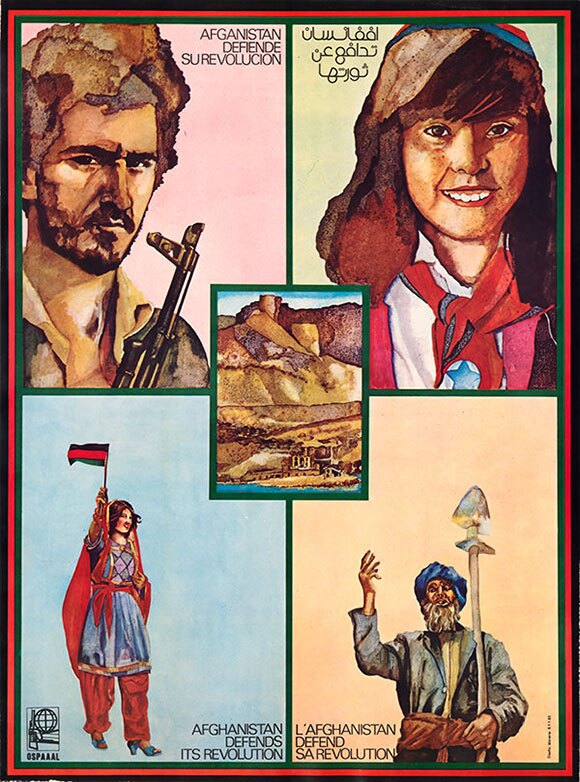Histories Absolved: Revolutionary Cuban Poster Art and the Muslim International

In partnership with The Los Angeles/Islam Arts Initiative to bring together nearly 30 cultural institutions throughout Los Angeles to tell various stories of traditional and contemporary art from multiple Islamic regions and their significant global diasporas.
An intriguing, and jarring, collection of politically charged posters is on view this Saturday at the Medina art space on the Chung King Road gallery row in Chinatown. Products of the Cuban revolution in the 20th century, these images were created to express the island nation's solidarity with Muslim liberation movements in the Middle East. The title of this exhibition, "Histories Absolved: Revolutionary Cuban Poster Art and the Muslim International" is taken from the famous 1953 peroration that Fidel Castro delivered in court as a defendant on trial for attacks against the Bautista regime: "History will absolve me."

The posters in this exhibition were all produced by the Organization of Solidarity with the People of Asia, Africa and Latin America, a graphic design entity launched by the Cuban government in the mid-1960s. OSPAAAL's primary mission was to create agitprop posters with images and messages supporting the activities of anti-imperialist militants and leftist vanguard governments in the three geopolitical regions identified in its moniker. These posters were then distributed around Cuba and around the globe as folded inserts in the political magazine Tricontinental.
Though OSPAAAL's subjects included revolutionary figures and freedom fighters in a variety of conflict regions, all of the images in "Histories Absolved" specifically illustrate Arab and Muslim struggles. Curated by University of California-Irvine professor Sohail Daulatzai, author of the 2012 book "Black Star, Crescent Moon: The Muslim International and Black Freedom Beyond America," from his personal collection of original OSPAAAL posters, the show includes 19 pieces produced between 1968 and 1983. Because they were destined for international viewing, these posters all featured texts in four languages: Spanish, English, Arabic, and French.

Daulatzai finds the roots of Latino-Arab political solidarity manifested by these posters in a statement by the 19th century political writer Jose Martí, whom Castro identified in his 1953 court speech as "the intellectual author of [Cuba's] revolution, the apostle of our independence." Campaigning on behalf of the northern Morocco Berber community's ambitions to gain independence from Spanish rule, Martí wrote in 1893 that "We are all Moors!" Implicit in this statement was the assertion not only of a common cause, but also a common historical past, between two peoples on separate continents dating back to 1492, when both the Moors were expelled from Spain and Christopher Columbus initiated the conquest of the Americas.
The first thing a viewer walking into the Medina gallery notices in these posters is all the rifles: no fewer than 15 out of the 19 images here feature big guns in the hands (or, in one case, the eyes) of the militant brethren imagined by the artists of OSPAAAL (and a 16th poster implies a fire bombing). The unified message in all these posters is a clear call for revolutionaries in the Middle East to take up arms against their enemies.

The posters endorse a variety of communities and causes in Middle East politics. One piece expressing solidarity with Libya, for example, dates to 1983, a year when the U.S. bombed that country. Another poster, from 1979, declares "Union is Victory" in Lebanon. On the occasion of the 30th anniversary of Egypt's 1952 revolution, one poster celebrates the figure of its leader Gamal Abdel Nasser, perhaps in an implicitly contrasting rebuke to the recently assassinated Egyptian president Anwar Sadat, who had reached a peace agreement with Israel. Four apocalyptic horsemen in another piece from 1972 ride on behalf of pan-Arab nationalization of the region's oil production. Two posters support the movement for liberation of the western Sahara from Moroccan domination, one explicitly celebrating the Frente Polisario and another offering a choice between "Independence or Genocide."
A couple of the works on display express support for the Syrian regime of Hafez al-Assad, father and predecessor of the country's current leader, accused war criminal Bashar al-Assad. Several posters express solidarity with the Palestinians in their conflict with Israel. One ambiguously messaged image from '83 declares "Afghanistan Defends its Revolution," a statement perhaps at odds with Castro's declared endorsement of the Soviet invasion of that country a few years earlier. Another from 1969 endorses Yemen independence.
"Histories Absolved: Revolutionary Cuban Poster Art and the Muslim International" at Medina, 977 ½ Chung King Road, this Saturday, December 13, from 6 to 9 p.m.
